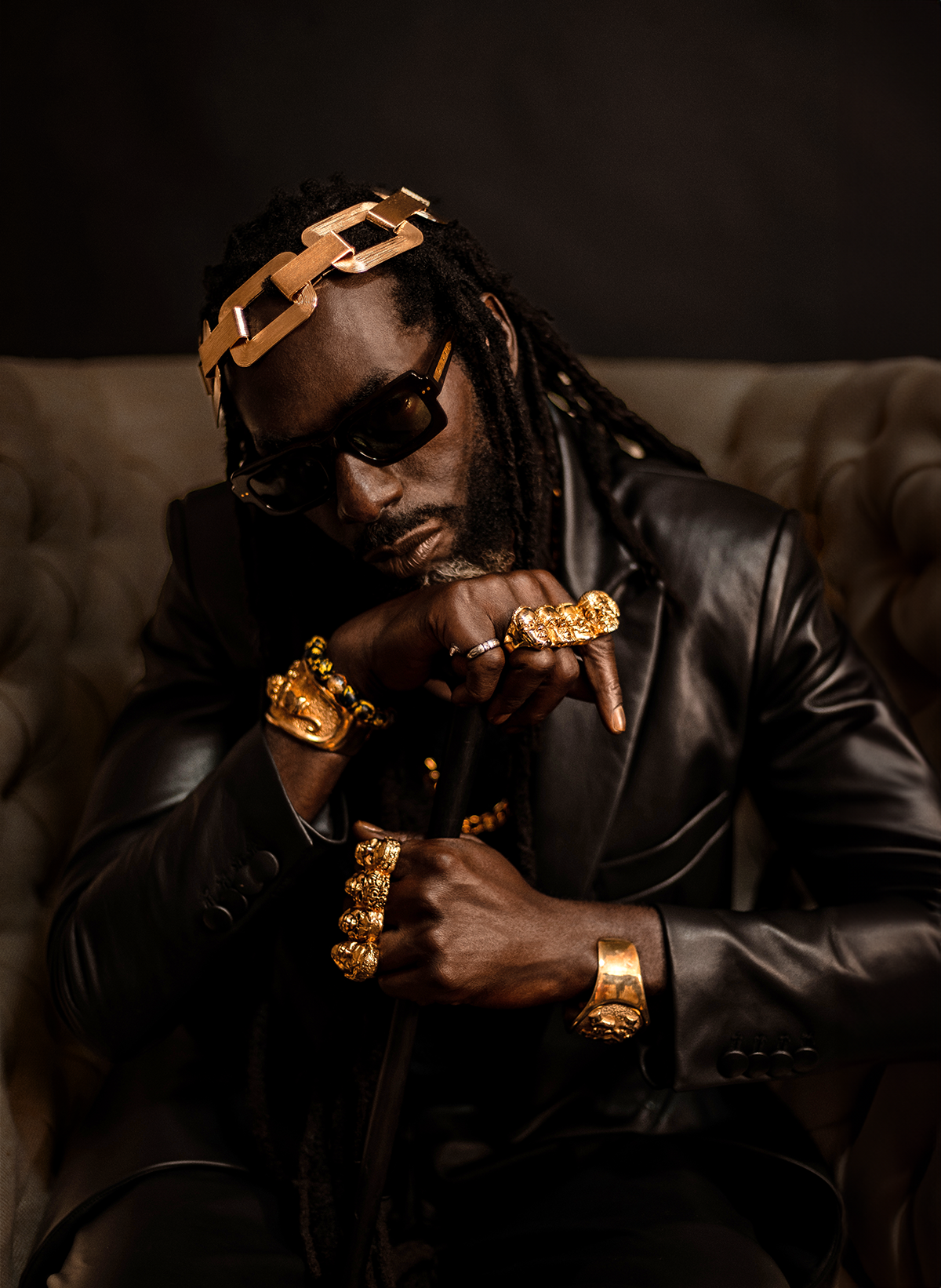About Buju Banton

There is no debate: Buju Banton is the world’s greatest reggae artist to occupy planet earth. The man born out of the Salt Lane slums of Kingston as Mark Anthony Myrie is a dancehall icon, Grammy winner, revolutionary, teacher, as well as breaker of records set by the honorable Bob Marley and mental chains worn by the misinformed.
For over thirty years, the author of Caribbean classics like “Champion” and “Love Me Brownin” has collaborated with fellow legends from Beres Hammond to Pharrell Williams to the late Heavy D and served food in the form of eleven studio albums which share the same vertebrae: Love is both the standard and solution. For this very reason, Buju is deploying his latest and twelfth studio album Born For Greatness to lead a renaissance of Roots Rock Reggae, the Ethiopia to Jamaica protest music planted in humanity, love and spirituality. With today’s dancehall scene primarily relegated to young street life, whom better to return the world to the musical essence of gold, green and black?
The bar is immediately raised on the lead single “High Life” on which Buju, his production co-pilot Jermaine “J’ August” Reid and California King Snoop craft a sticky, yet educational ode to music lover’s favorite herb. Awareness continues on the follow up “Coconut Water,” a metaphoric cautionary track with enough bump to keep rude bwoy knees and Red Stripes raised high.
Like the Roots Rock Reggae of yesteryear, the agenda of Born For Greatness rarely deviates from equality and love. The latter––especially when powered by Buju’s beautiful concoction of what he calls “R & Reggae” ––is serious grown folk business. The infectiousness of Stephen Marley’s breezy production and hook on “Feel A Way” helps Buju’s words of affirmation return chivalry to the dance floor. Preciously vulnerable tunes such as “Nuff Love For You” and the marching “Walked Out” preach that while our favorite four letter word is the answer, it is both complicated and always worth the fight. Moreover, women are worth fighting for because they are our heart’s greatest teacher. It’s within “Body To Body,” where new songbird Victoria Monet allows Buju to land the lesson that a man must take his time with a woman, if she is to give him forever.
Lord Banton punctuates that raising vibrations, empathy, and healthier families around the world can’t be accomplished without learning, unlearning and prayer. On the Dean Mundy-produced “Let My People Go,” he pleads for the freedom of those shackled by ignorance and geopolitical wars before imploring descendants of Africa to remember how much their ancestors sacrificed on “Trial By Fire.” Over some major keys provided by DJ Khaled and Street Runner and some lyrical assistance from Wyclef Jean and Jerry Wonder, Buju blesses “We Find A Way” and the oppressed with strength and optimism in the form of poetic jewelry: “Fear not the darkness/ Nor the deeds of the heartless/Morning always comes despite/what has come through the night.”

![]()



